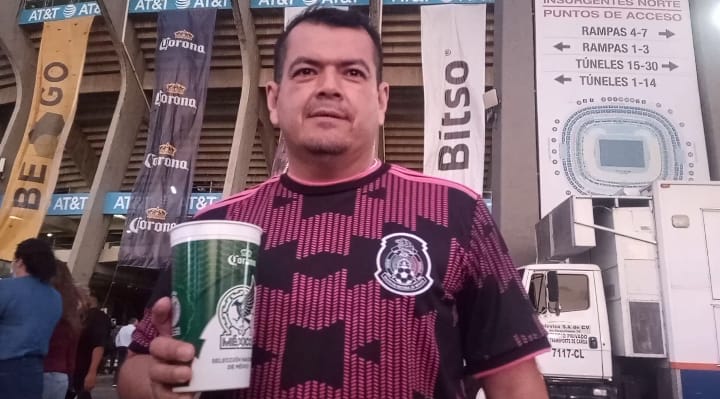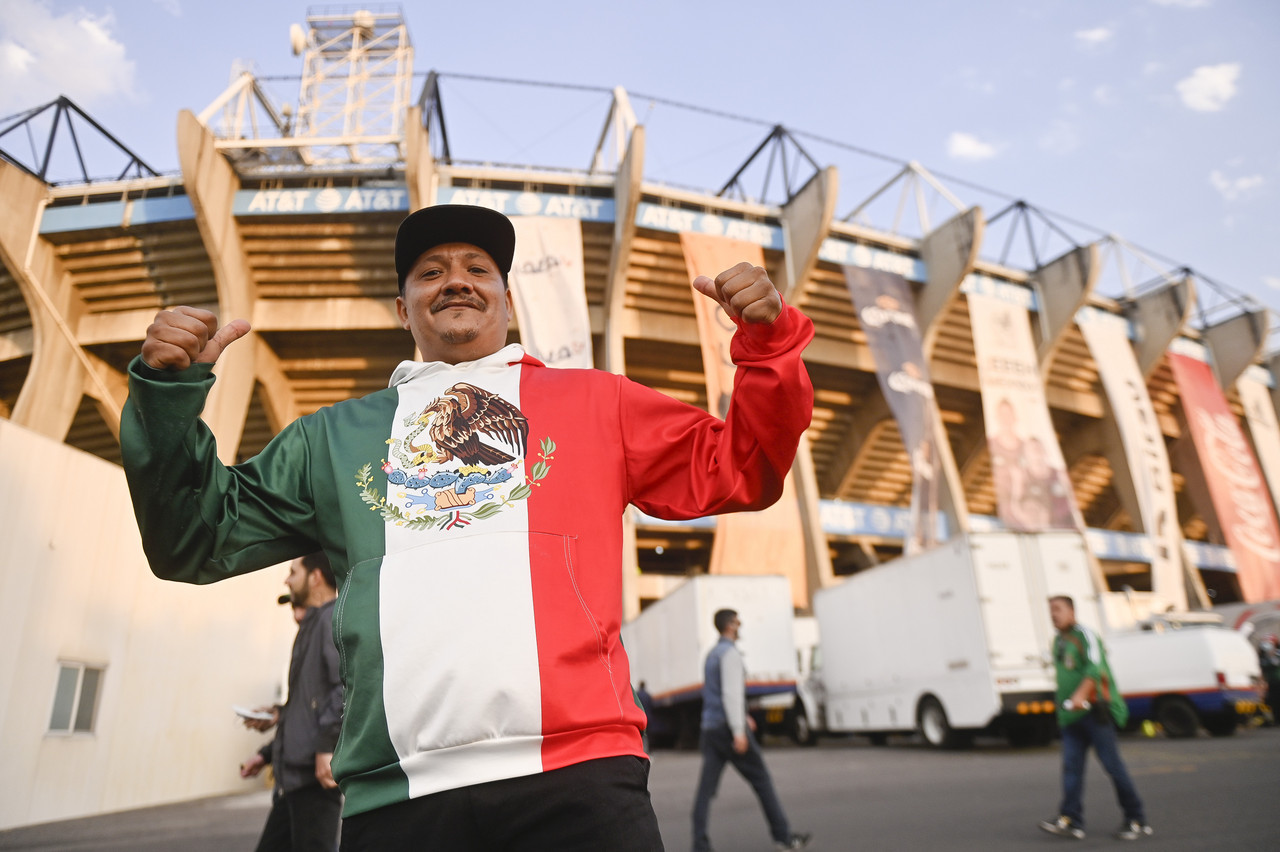Mexico's National Team hosted the United States at the Azteca Stadium in a match of utmost importance for the CONCACAF World Cup Qualifiers.
The pressure was on the Tricolor due to the poor performances shown during this final octagonal, which have cost them some boos at the Coloso de Santa Ursula.
In addition, the Aztecs were coming off two consecutive defeats against the Stars and Stripes, making this match the perfect opportunity to put an end to the bad streak.
As is customary in every match between these two teams, the atmosphere inside and outside the stadium was unbeatable. The passion and excitement permeated from the pre-match, where several displays of folklore from both locals and visitors spiced up the wait for the opening whistle. The visiting cheerleaders, who traveled in large numbers, made their presence felt under the chant of "U.S.A., U.S.A."; while on the Mexican side, a group of mariachis chanted "Mexico lindo y querido" (Beautiful and beloved Mexico), outside the stadium.
The color was not long in coming, and it was the "Mi loka pasión" (My crazy passion) cheering group that started a tour from the main esplanade to gate three of the stadium with rags, chants and colored bombs, in pure Argentinean bar style. However, due to the recent banning of barras in Mexican soccer, the supporters' club was unable to enter as a block.
In addition to these measures to eradicate violence in soccer, Fan ID was also used for the first time on a massive scale, as this method had only been pilot-tested with a small group of attendees due to the ban on closed-door games for El Tri. In this first attempt, the organization fell a little short, which meant that even in the 25th minute of the first half there were long lines to register for access.
Fan ID was created as a strategy to eradicate some acts of violence in soccer, such as homophobic shouting and violence among supporters. Given this requirement, Carlos Galicia, a fan from Tijuana who traveled to the CDMX exclusively to attend this match, shared with VAVEL his thoughts on these measures and violent acts in soccer: "The Fan ID is quick and easy to use, at least in my case it was, it did not take more than 5 minutes to register. Perhaps the organization for access could be more agile," he suggested.

He also added that, while this tool will help identify fans who break the rules, it is also a personal task to understand and work to eliminate those behaviors that are alien to soccer.
Carlos, was unhappy with the group of fans who mobilized on networks to continue with the homophobic shout and exposed how that minority group ends up affecting the real fans:
"It is unfair because for one group we all end up paying, and it is reflected in the increase in ticket prices or that there are no fans... Mexicans are loyal to our national team and we will continue to support it," added Galicia.
Judging by this fan, many more will share this thought, regardless of the fact that they will have to cross the country to support Mexico on its way to Qatar.
Once the match started, nearly 50,000 spectators sang the famous "Cielito lindo" in the stands during the 90 minutes as they waited for the goals that never came. What did happen was the expulsion of some fans who were involved in homophobic shouting, and although there is still no official report, several fans have already been identified for this situation.
Finally, the fans were once again dissatisfied with the performance of Gerardo Martino and his players, who shared the points with their fierce rivals and will have to wait for the following matches to put the final touches to their quest for a World Cup ticket.







































